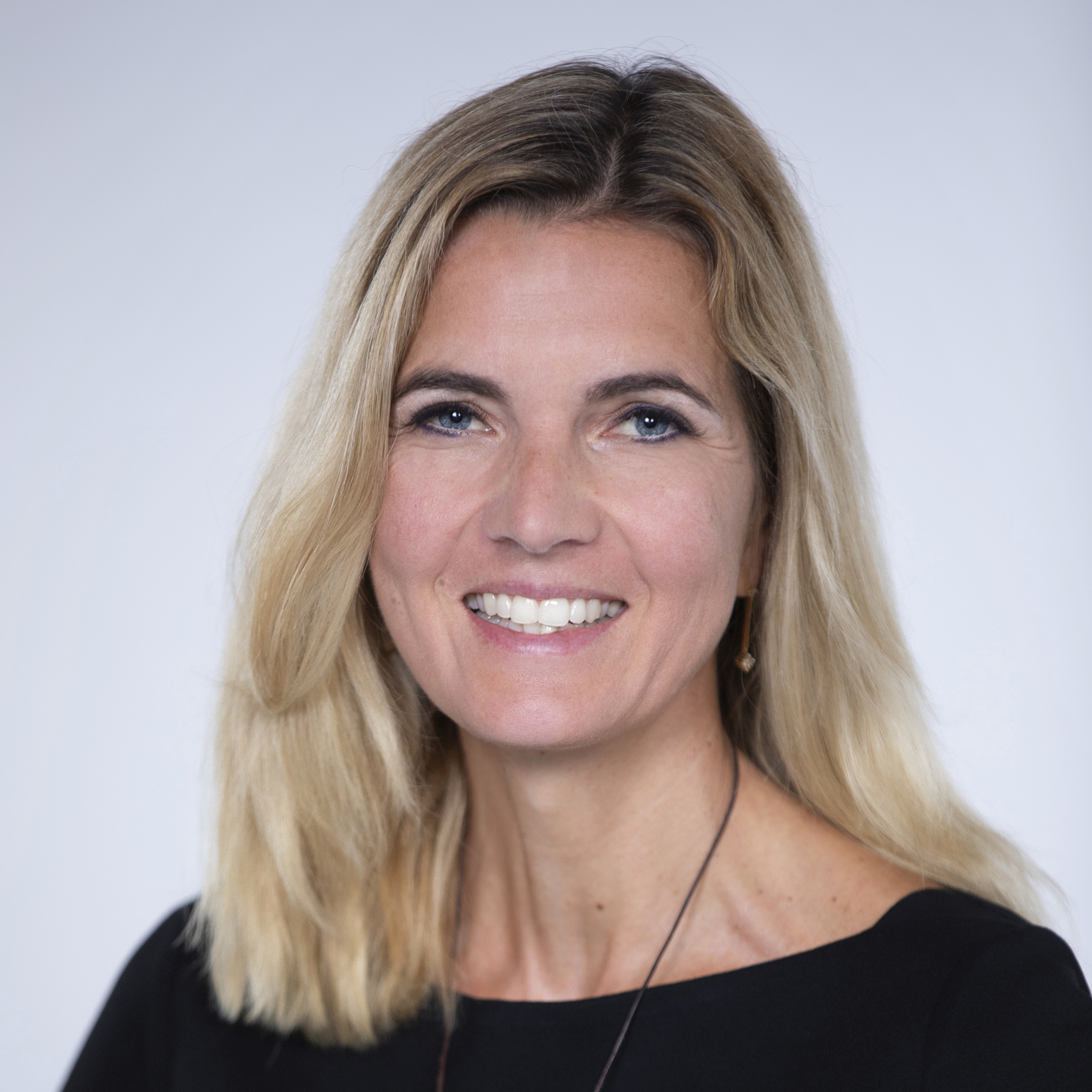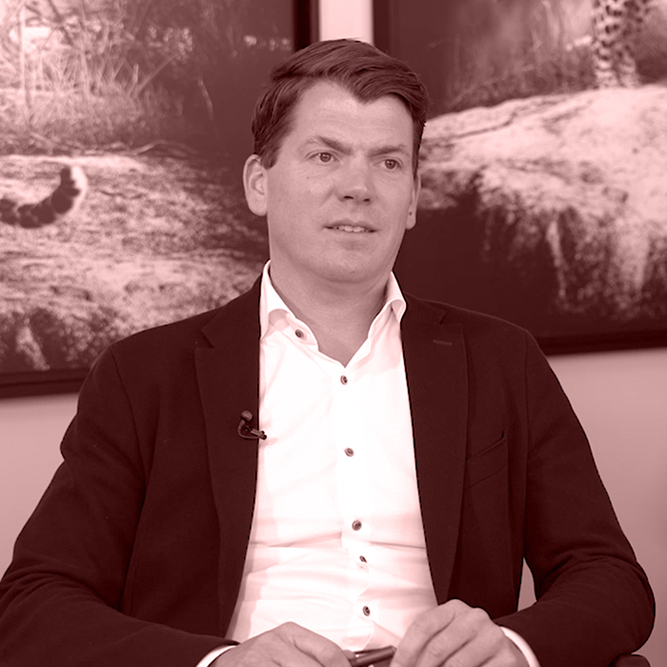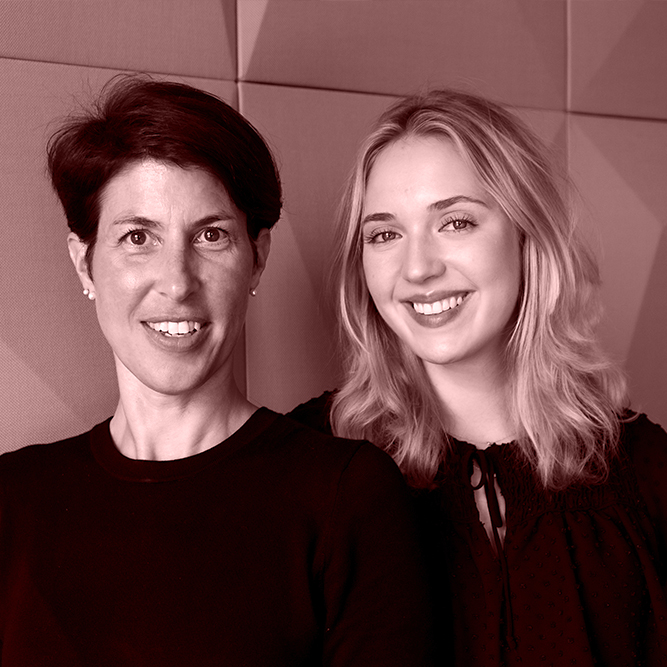Silke Fußbahn in conversation with Mareike Boccola
Did you grow up thinking that you would eventually take over the Hauschild Company?
Mareike Boccola (MB): My father never put any pressure on me in this respect. My younger sister is a doctor, so a takeover was out of the question. For me, my father had a banking apprenticeship in mind as my initial training, followed by university studies. I didn’t quite follow that plan and went straight to university. I chose the classic course of business administration, because it gives you a broad base. In the end, everything happened by coincidences. I had never strategically planned to take over the company from my father. It was always very important to me that I didn’t want to join the company simply as a daughter. “Daughter of” is not a qualification in the first place. I lived abroad for many years, including in China and Abu Dhabi. From there, I then began to work more for our family business for the first time, I flew to important trade shows for example.
As a working woman and mother, are you perceived differently in Abu Dhabi than in Asia?
MB: When I was in China, I didn’t have any problems there. I think communism plays a big role in that. Looking at Japan and South Korea, I had a completely different experience. There, they always thought I was the assistant or secretary. And my employee was always thought of as the one who was in charge. When I got the offer for Abu Dhabi, I told my husband that I would not do it. We approached our first trip there with the attitude that being a woman there was dangerous. Now I know: Abu Dhabi and the United Arab Emirates have very good sides, especially in terms of security. Of course, there are a number of things that are not going right there. At the same time, in my professional life there I was very well recognized there. I have to add though that I worked in a very American-European environment. When I was working for my former employer in Saudi Arabia, I often had the feeling that I was doing something wrong in my behavior as a woman. There are truely big cultural differences.
Women are said to have a high degree of empathy and sensitivity. Does this characteristic help you in your leadership role?
MB: I like to observe my husband, who, as an Italian, per se has a very feminine, romantic side. In his people management I see aspects that I didn’t see in my father, yet tend to find in myself. I believe a certain emotionality makes things easier. Of course, you also take some issues home with you. I take a lot of things very much to heart.
You run your family business together with your husband. He is an engineer. A good coincidence?
MB: It was very clear that my husband would not quickly find an international job in Hamm that matched his career and performance. We decided early on that we didn’t want to commute under any circumstances. We knew from our time in China how much time is lost in commuting. My husband was always interested in our product and the more he looked at it from his perspective as an engineer, the more potential he saw. One day he said to me it was a raw diamond. In the end, it was a perfect fit for us to run the company together.
Was your father still actively involved in the company at the beginning?
MB: Yes, that was a valuable and important time. I used to do vacation jobs here and then, but I was also away for 20 years. We didn’t know the entire processes at all. At the beginning, my husband stood in the production area and and screwed things together. He wanted to know in detail how things worked. So he learned from scratch how the machines work and how our products are manufactured. After that, he worked in market development and evaluated where we were not yet strongly positioned. Today, we sell in 40 countries and have partners in 10 countries. At the same time I had a close look into areas like marketing, communications and sales. Up to that point, marketing had never been done. There was e.g. no marketing materials or even a website.
Did you also address internal communications in this context?
MB: Yes, a lot of things were done on demand until then. And then we grew relatively quickly. In the first step, we created a very detailed organizational chart, defined competencies and responsibilities, and introduced basic internal communication. We both took this experience with us from large companies we used to work for. Corporate christmas parties and summer festivities have always existed. But there was no such thing as institutionalized department meetings before. I am aware that internal communication is a key factor in employee satisfaction. That’s why we try to do a lot in this direction and get everyone on board. We celebrate successes together and go through lean times together, too.
How did your father react to the fact that topics that had previously no importance at all are now relevant?
MB: I was very surprised at how well he was able to let go. He understood very quickly that he had to clear his place so that he was no longer seen as the first contact person. That came directly from him. He wanted to avoid there being any ambiguity. My father has always seen what my husband and I had set up. He didn’t have to worry, so we never had any conflicts in that respect.
How did your father lead differently than you and your husband do today?
MB: If you walk through our company building today and ask long time employees, you’ll hear that my father was always there. He walked around the plant every day and listened to what was going on. We have inherited that from him. Being there for employees and valuing each individual – he introduced this culture. In my eyes he had a very good management style. Do my husband and I do things differently? I would say no. In any case, we want our employees to think and look ahead. We want to encourage entrepreneurial thinking, which they won’t get if only the person at the top decides everything on his or her own.
How do you address the shortage of skilled workers that is present everywhere?
MB: Yes, it’s a big issue. I am very much committed to it. For a long time, we always got new employees by word of mouth. But we are slowly reaching our limits here. Of course, we need young, well-trained talent now and in the future. At the same time the enormous knowledge of our long-serving employees, especially in the areas of research, technology and development has to be preserved for the company. When they retire, we are already thinking in advance about how we can retain their competences, for example as senior advisors.
How do you combine family life and your work as a managing director?
MB: I plan my business trips according to when my parents are available. We sit down at the beginning of the year and go over our calendars. On dates when I have to leave, my parents fill in. Our two daughters are most important for us and have absolute priority. That’s why I also do a lot of home office work and am always at home at lunchtime, if at all possible. That’s the big advantage of being a woman in a family business. You can place a high value on family in the organization. I am aware that this flexibility, which the company gives me as the owner, is very very special. You don’t get that in this form anywhere else.
As a family business, have you ever sought external advice?
MB: Not at all. In retrospect, I might have done some things differently, especially at the beginning. Particularly in the division of roles between my husband and me. But also between my father, me and my husband. Of course not everything went smoothly, but overall we managed it very well. The most important realization, even when I became a mother, was the incredible role of communication. The most important thing is that we all talk to each other. We had to find our way, because in the beginning I was always between my father and my husband. If succession is about one thing it’s that there should only be one contact person for the company.
Anything else only brings chaos, uncertainty and dissatisfaction. The importance of communication and clear responsibilities are my personal key learnings.
What advice would you give to other daughters who are taking over in the family business?
MB: Establish clear responsibilities right from the start. And I would always advise them to learn somewhere else. It’s so much more valuable for the distance process, if you have the opportunity to earn your spurs somewhere else. And as a final point, I would advise asking for a free hand. My father used to said “you are allowed to make mistakes, just make them only once”.
Let it be done. Is that also the tip you would like to give to the senior generation?
MB: Exactly. And trust, that mistakes always bring with them a chance to develop and learn.
Mareike Boccola
More interviews
New generation
In conversation with Jens-Albert Schenk
Markus Gehrt talks to Jens-Albert Schenk, Managing Partner at OSMA-Aufzüge Albert Schenk GmbH & Co KG, about generational transition in a family businesses.
Innovation
In conversation with Prof. Christian Gerloff
Annekathrin Walter talks to Prof. Christian Gerloff, Deputy Medical Director of the UKE, about innovation in the healthcare sector.

Silke Fußbahn
Tel.:+49 211 17 39 94 96 | Silke.Fussbahn@rochusmummert.com
Rochus Mummert Executive Consultants GmbH |
Schadowplatz 12 |
40212 Düsseldorf





